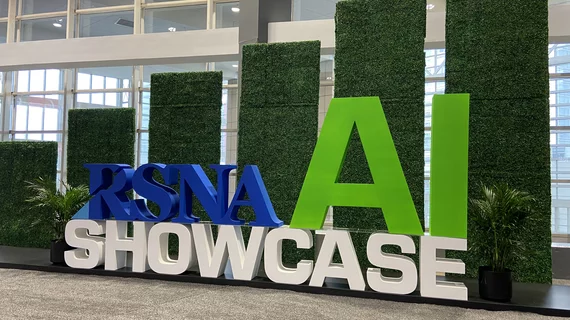RSNA launches its first imaging AI certificate program
The Radiologic Society of North America announced today that its artificial intelligence certification program aimed at guiding radiologists through the process of integrating tools into their clinical workflows is officially live.
The program contains six radiology-specific modules with case-based curriculum and hands-on activities. It is interactive and easy to work through, even for those who do not consider themselves to be especially tech-savvy, according to RSNA. The society first revealed plans for the program back in July.
“The content is focused on the mainstream radiologist who wants to be more involved in implementing AI algorithms in their practice. Overall, this certificate will be helpful for all radiologists, because it will increase their level of comfort and understanding of these AI applications,” Linda Moy, MD, program director of the NYU Grossman School of Medicine in New York City, said in a statement.
In the modules, expert instructors guide participants step-by-step through the implementation, monitoring and use of AI in everyday practice. The program also offers opportunities for radiologists to practice what they have learned using hands-on exercises.
On average, each module should take around three hours to complete. However, they can be viewed on demand, allowing users to complete them at their own pace as their schedules allow.
“This certification program will allow radiologists to develop realistic expectations of how AI software may change their clinical workflow,” Moy added. “Radiologists want to gain this knowledge to help with their career development, either in their current or future job roles.”
The Foundational Certificate is the first available course. It launches Wednesday, January 26, 2022, and will be available through June 2022. In the future, RSNA plans to offer additional, more advanced levels of certification so that providers can stay up-to-date on the latest AI developments.
To learn more, visit RSNA.org/AI-certificate.

